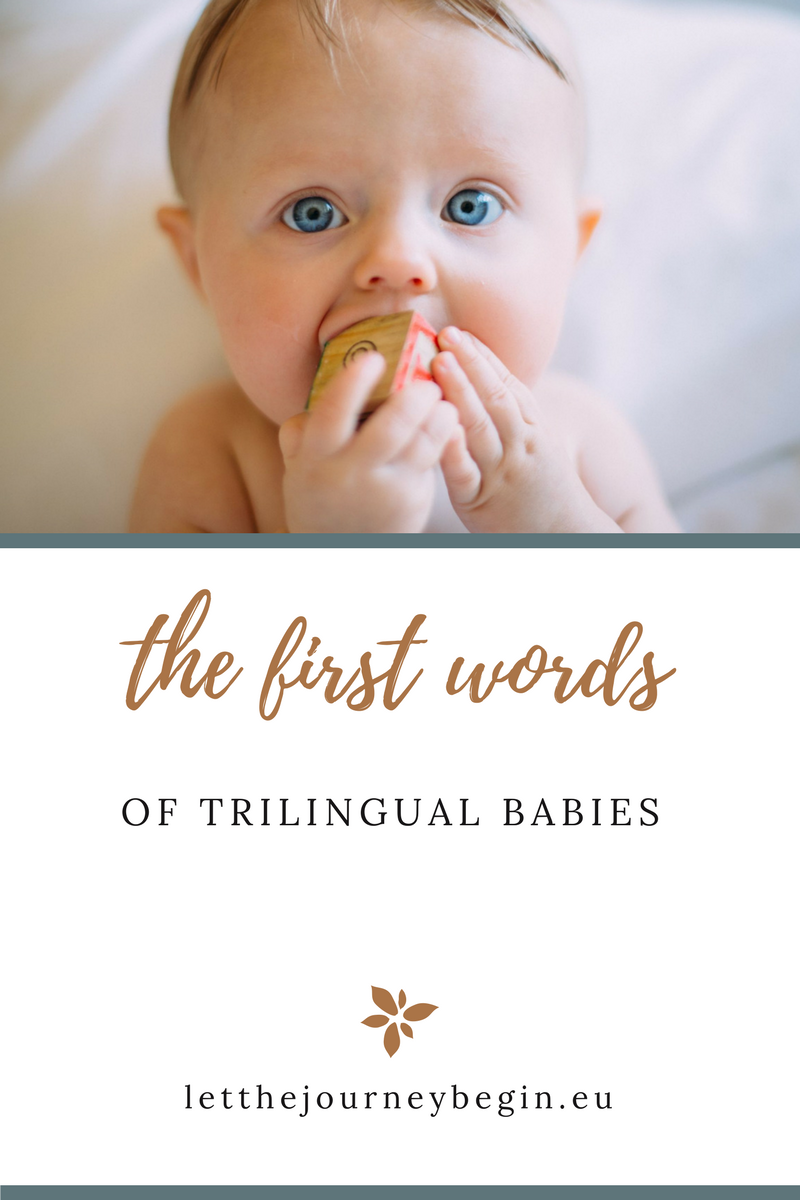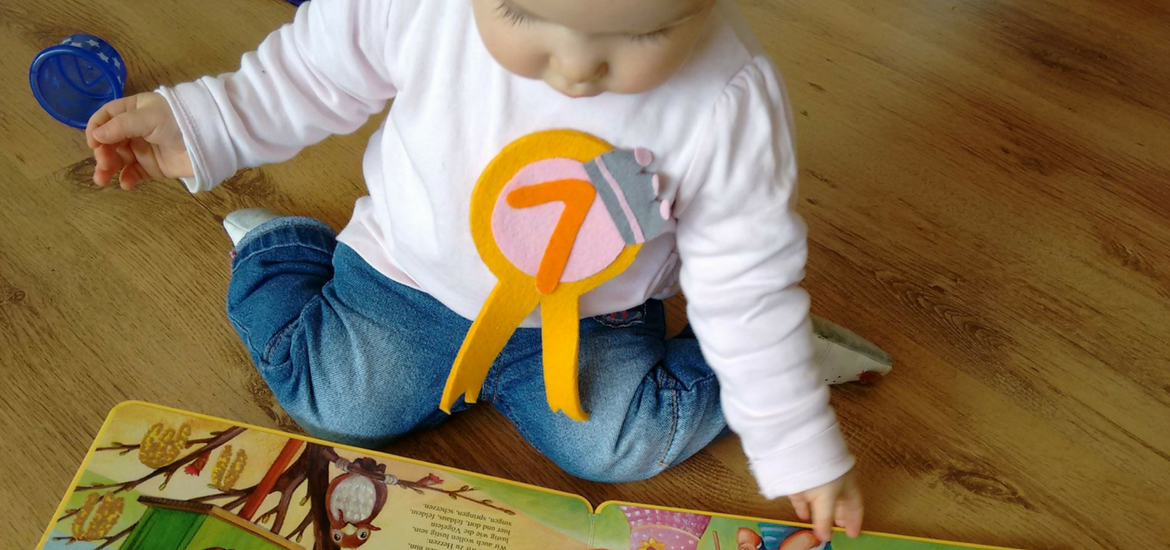Do you know what your first words were? According to the little book that was given to every parent upon the birth of a baby in Soviet Latvia for noting memorable milestones, my first words were mom (mama), dad (tata), and poo (kaka). To be honest, I found my choice of a third word a bit strange and embarrassing until my mom explained that they used to call everything that I should not pick up and/or chew on “kaka“. And it is an easy word to pronounce, don’t you think?
I have come to realise that this little book was making the subject of baby’s first words appear much, much simpler than it actually is. The following will, most likely, come as no surprise to most parents but up until having kids I had virtually no experience with baby speech so bear with me.
When is a word a word?
Chances are that when your baby starts to utter her first mamama’s and dadada’s they have nothing to do with you, she is just practising her first syllables. Of course, it did not stop my heart melting when the kiddos crawled up to me saying “mamama” for the first time. But the thing is: how do you know for sure when those mamama’s stop being plays with sounds and start meaning you?
It is the same thing with signs and gestures: how do you know for certain that them nodding or shaking their head actually mean “yes” or “no” instead of being mere mimicking of things you are doing?
In my experience, the business of first words is a whole lot of guesswork. Baby speech is a lot like a Polaroid picture – shapes start to emerge and slowly become clearer allowing you to gradually grasp what they are. And, quite likely, their meaning is much clearer in hindsight.
Birdy’s first words
Taking into account all the confusion described above, my best guess is that mama was Birdy’s first word. Probably because every time she would say something along the lines of mamamama I would exclaim “yes, mamma, mamma!“.
While mama is pretty much the same in the three languages that we use in our family, the case with naming daddy is a little more complicated. English babies usually say something along the lines of “dada“, in German they say “papa“, while the Latvian “tētis” usually becomes tata or tete in baby speech. How is a little one to know that all of these words mean the same? In the end Birdy chose to call her dad “teta” or “tets“, most likely because I happily announced “tētis ir mājās!” (daddy is home) every time hubby come home from work.
We are a little unsure what counts as Birdy’s third word. It could be “ai” – a sound you say in German when teaching the little one to pet instead of pull, e.g., a cat’s fur (in Latvian it would be “pai“). For a while there it was “ai, ai” teddy bear, “ai, ai” computer, “ai, ai” living room wall. Sadly it was rarely “ai, ai” mama, or “ai, ai” tete, apparently pulling our hair was much too fun.
Or the third word could be “atā” – Latvian for bye. Birdy did an adorable wave accompanied by “tā, tā“, her version of bye bye. As a result, we taught this Latvian phrase to everyone from the German side of the family to kindergarten teachers.
Bamm-Bamm’s first words
Our youngest surprised the extended family by uttering his first clear mamama’s already around the age of seven months. Apparently, having the experience with one child doesn’t help much with deciphering the speech of another one. I refused to believe that his syllable strings mean me until the evidence became indisputable.
Following in his sister’s footsteps, Bamm-Bamm’s second word was a clear and intentionally-used “tete“. Birdy, who is now three and only uses the Latvian word when talking with me, tried to correct him saying that it’s “papa”. Alas, her attempts fell on deaf ears and she soon gave up.
In contrast to his big sister, Bamm-Bamm initially saw little use to learning such silly things as waving or clapping hands. Instead, his third word was a definite “nee“, i.e., “no” in both German and Latvian. Before we knew it, it was accompanied by a vigorous head shake. At the age of 14 months he’s yet to learn saying yes and nodding his head but loves saying no just because he can.
All in all, the first words of our two trilingual kids reveal not only the importance of language input but (I suspect) also the differences of character. It’s the third word that tells the most!

Read more about our family’s language journey
- Trilingualism: the Building Blocks – how we manage the three language mix in our day-to-day lives
- “Does she understand German?” – that time when the daycare teachers were worried that our 1,5-year-old doesn’t understand enough German
- Of “right” and “wrong” languages – should we pretend not to understand our bilingual child if she uses the “wrong” language with either of us?
- Birdy Talks: 22 Months – taking stock after the first language explosion
- Birdy Talks: 25 Months – how much difference can 3 months make!
- Birdy Talks: 2 ⅔ Years – the language progress of our trilingual not-yet-three-year-old
